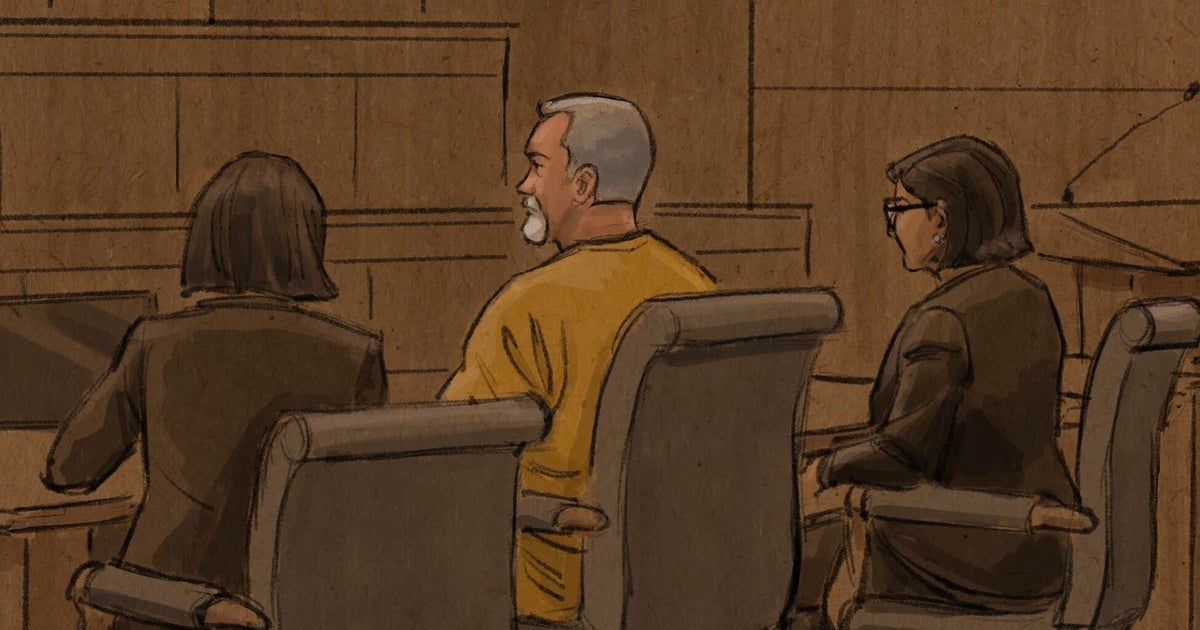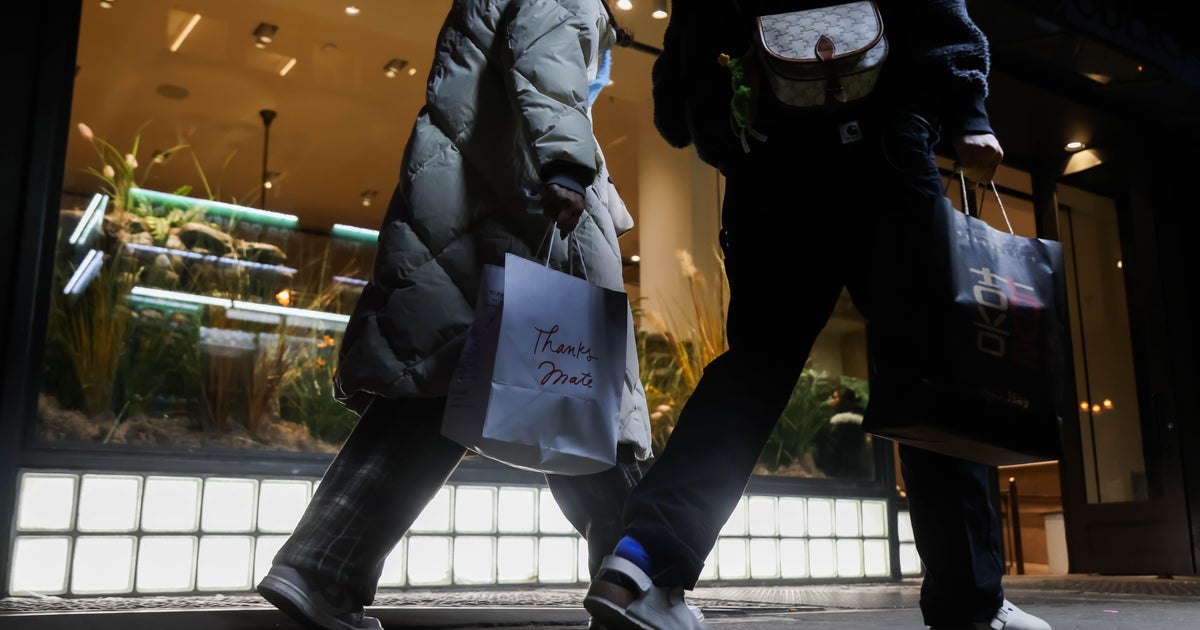Where does JD Vance stand on key economic issues?
Sen. JD Vance's career has followed a classic American rags-to-riches trajectory: After growing up in poverty in rural Ohio, he was accepted at an Ivy League university, finished a law degree, and leveraged his new connections into wealth and a seat in the U.S. Senate.
While that part of Vance's biography may be familiar to voters, thanks to his best-selling 2016 memoir "Hillbilly Elegy" and frequent media appearances as a senator, his economic views are less well known. But with former President Donald Trump having picked him as his running mate for November, Vance's economic views on everything from trade to tech are drawing scrutiny.
Vance, 39, will face more scrutiny on Tuesday night when he faces Minnesota Gov. Tim Walz in the only scheduled vice presidential debate before the November election. The debate starts at 9 p.m. ET on Tuesday, when it will air and stream on CBS News.
While Vance is known for changing his views – he once called Trump "cultural heroin" — he's long espoused the idea that Americans in economically struggling regions of the country need to exercise willpower to improve their lives, rather than rely on government programs.
At the same time, Vance has also championed trade policies that align with Trump's "America first" vision, which include imposing tariffs on imports from China and other nations as a way to promote U.S. manufacturing and project American jobs.
"Given that Vance is a true believer in Trump's protectionist trade policies, this pick is just the latest sign that trade will be near the top of Trump's agenda if he returns to the White House," Isaac Boltansky, director of policy research at investment bank BTIG, said in a report on Tuesday.
Support for protectionist policies helped Vance win his Senate seat in Ohio, and should be popular with the Great Lakes battleground states of Michigan, Pennsylvania and Wisconsin, Boltansky added.
Meanwhile, viewers on Tuesday will get a chance to compare Vance's economic views with those of Walz, who as governor of Minnesota enacted the largest state Child Tax Credit in the nation and free school meals for children — programs he paid for by raising taxes on high earners in the state.
Here's what to know about Vance's career and economic views.
Trump praised Vance's business career
In announcing Vance as his running mate, Trump highlighted what he called "a very successful business career in technology and finance."
That career has made Vance a multimillionaire, according to his 2022 Senate financial disclosure form. He's worth at least $4 million thanks to investments in public companies such as Walmart, as well as bitcoin and real state.
That career came about at least in part because of an encounter with right-leaning billionaire Peter Thiel in 2011, when Vance was attending Yale Law School. In a 2020 essay, Vance writes about how Thiel condemned an obsession with achievement among elite students because he believed they tended to lose sight of investing time on worthwhile projects in favor of chasing status.
"He articulated a feeling that had until then remained unformed: that I was obsessed with achievement in se — not as an end to something meaningful, but to win a social competition," Vance wrote.
Thiel's talk spurred Vance to begin "immediately planning for a career outside the law," he wrote. In 2016, Vance got into venture capital, joining Thiel's firm Mithril Capital that year. In 2017, he joined Revolution, a venture fund started by former AOL executive Steve Case, where Vance was charged with finding startups in "left behind" cities.
Vance then struck out on his own by creating his own fund, Narya, an early-stage venture firm that invests in startups including conservative social media site Rumble and a prayer app called Hallow.
Some venture capital executives praised Vance's pick as Trump's running mate, with Delian Asparouhov, a partner from the Thiel-based Founders Fund, writing on social media, "WE HAVE A FORMER TECH VC IN THE WHITE HOUSE. GREATEST COUNTRY ON EARTH BABY."
What are Vance's views on tech?
Although some denizens of Silicon Valley see Vance as one of their own, he has championed some views that run counter to the interests of the country's most dominant tech businesses.
While Vance's tech experience "is a clear positive, and his comments on innovation should be heartening to the industry, it is important to note that Vance has regularly chastised the 'Big Tech oligarchy' and called for breaking up Alphabet's Google," Boltansky wrote.
Notably, Vance has also praised Federal Trade Commission Chair Lina Khan, who is known for stiffening antitrust enforcement under the Biden regime and taking on tech giants like Microsoft, which the agency sued to block its acquisition of Activision. Khan is "doing a pretty good job," said earlier this year.
Vance's antitrust views mean that Big Tech may continue to see "headwinds" if Trump wins in November, although there may be "an overall thawing in the M&A regulatory landscape that proves beneficial for deal activity," Boltansky said.
What does Vance say about trade and tariffs?
Vance supports Trump's protectionist trade policies, including tariffs on Chinese goods, which indicates that this could be a priority for a second Trump administration.
"I certainly agree that we need to apply some broad-based tariffs, especially on goods coming in from China and not just solar panels and EV stuff," Vance told CBS News' "Face the Nation" in May. "We need to protect American industries from all of the competition."
However, economists point out that tariffs effectively act as consumption taxes on U.S. consumers, because they raise the cost of imported goods, while domestic manufacturers tend to boost their prices to maximize their profits. Vance told "Face the Nation" he doesn't agree with the premise that tariffs increase costs for consumers, but didn't elaborate.
What are Vance's views on energy and climate change?
Vance has expressed doubts about climate change, and is a strong supporter of the fossil fuel industry. In an interview with Fox News Channel's Sean Hannity on Monday, Vance said, "[Y]ou've got to unleash American energy. President Trump is so strong and as we had energy independence, Joe Biden has destroyed it."
He's also criticized the Inflation Reduction Act, the Biden administration's push to encourage Americans to replace their gas-powered cars with electric vehicles through tax credits to buy EVs, as well as to electrify their homes as a way to lower dependence on fossil fuels.
Has Vance said anything about Project 2025?
Project 2025, overseen by the conservative Heritage Foundation, is a detailed blueprint for the next Republican president that would overhaul the executive branch, as well as touch on economic issues including taxes and the Federal Reserve. Trump has sought to distance himself from the project, claiming this month that he knows "nothing" about the project.
In an interview earlier this month that asked about Project 2025, Vance noted, "There are some good ideas in there," but also claimed the project has no affiliation with the Trump campaign.
The project is spearheaded by ex-Trump administration officials, including project director Paul Dans, who was chief of staff at the Office of Personnel Management.
What other financial issues are important Vance?
Vance is a major supporter of digital currencies, and as a senator has co-sponsored legislation "aimed at preventing the banking regulators from forcing banks to stop serving disfavored industries such as crypto," Boltansky wrote.
"A Trump victory would lead to the regulatory landscape for digital assets becoming more supportive almost immediately at the market regulators and some bank regulators, but there is always some lead time to get people in place and actually shift policy," he added.



